April 7 stands as one of history’s most eventful days, witnessing the rise and fall of empires, groundbreaking discoveries, and moments that shaped our modern world across centuries of human achievement.

Politics and Government Events on April 7
1906 – Algeciras Conference Grants Morocco Control to France and Spain

The Algeciras Conference concluded with European powers formally recognizing French and Spanish authority over Morocco. This diplomatic settlement marked a crucial step in the European scramble for African territories.
The agreement effectively ended Moroccan independence while maintaining the illusion of international cooperation. Germany’s attempts to challenge French influence in North Africa were decisively rebuffed through this multilateral accord.
1933 – Nazi Germany Bans Jews from Civil Service
The Nazi regime implemented the Law for the Restoration of the Professional Civil Service, systematically removing Jews and political dissidents from government positions. This legislation represented one of the first major legal attacks on Jewish participation in German society.
The law provided the legal framework for broader persecution campaigns that would follow. Civil servants across Germany faced immediate dismissal based solely on their ethnic or political background.
1939 – Mussolini Establishes Italian Protectorate Over Albania
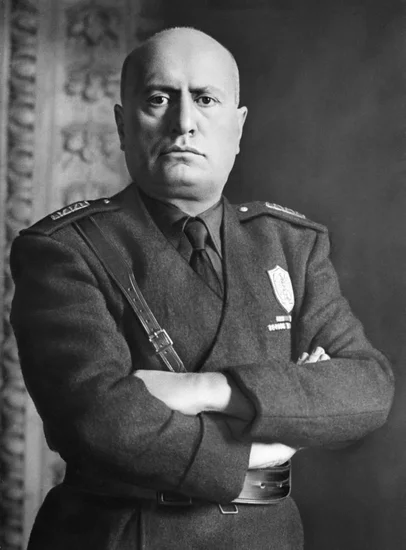
Benito Mussolini declared an Italian protectorate over Albania, forcing King Zog I into permanent exile. Italian forces occupied strategic positions throughout the country without significant resistance.
This aggressive expansion demonstrated Mussolini’s imperial ambitions in the Balkans. The occupation provided Italy with a crucial staging area for future military operations in southeastern Europe.
1954 – Eisenhower Articulates Domino Theory
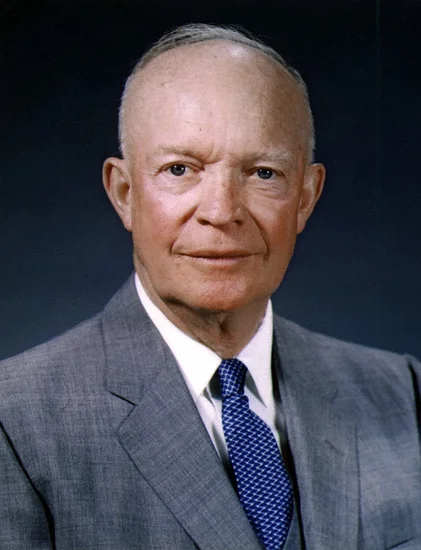
President Dwight D. Eisenhower delivered his famous “domino theory” speech during a White House news conference. His remarks warned that communist victories in one nation would inevitably lead to neighboring countries falling like dominoes.
This strategic doctrine would shape American foreign policy for decades. The theory provided intellectual justification for extensive military interventions throughout the Cold War era.
1955 – Winston Churchill Resigns as Prime Minister
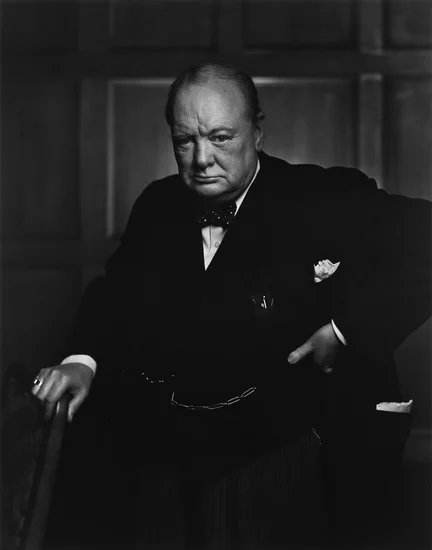
Sir Winston Churchill announced his resignation as Prime Minister of the United Kingdom amid growing concerns about his declining health. The wartime leader’s departure marked the end of an era in British politics.
Churchill’s resignation cleared the way for Anthony Eden to assume leadership. His decision reflected both personal health considerations and changing political dynamics within the Conservative Party.
2022 – Ketanji Brown Jackson Confirmed to Supreme Court

The United States Senate confirmed Ketanji Brown Jackson as the first Black woman to serve on the Supreme Court. Her historic appointment represented a significant milestone in American judicial history.
Jackson’s confirmation fulfilled President Biden’s campaign promise to diversify the nation’s highest court. Her appointment brought extensive federal judicial experience and a distinguished legal career to the bench.
Military and Naval History on April 7
1943 – Holocaust Massacre in Terebovlia
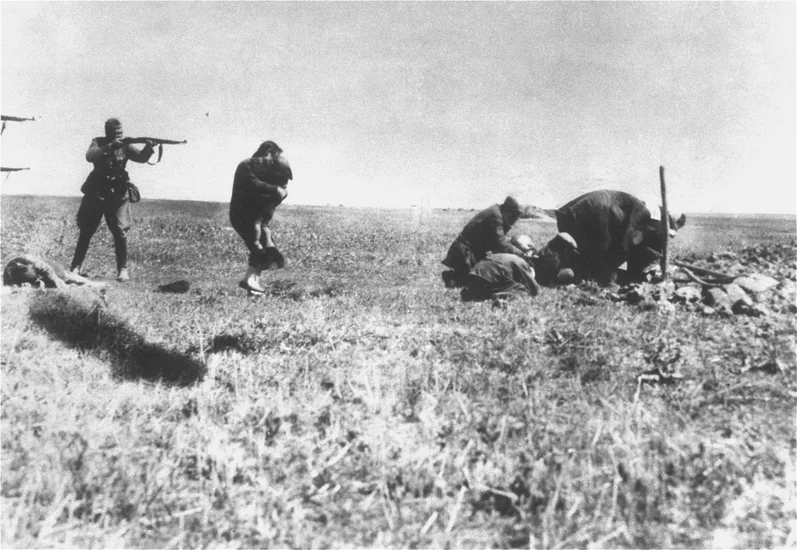
German forces ordered 1,100 Jews in Terebovlia, Ukraine, to march naked through the city to the village of Plebanivka. The victims were systematically shot and buried in mass graves upon arrival.
This atrocity represented part of the systematic extermination campaign across occupied Eastern Europe. Local populations witnessed the brutal implementation of Nazi genocide policies firsthand.
1944 – Imperial Japanese Battleship Yamato Sunk
The Imperial Japanese Navy’s massive battleship Yamato was destroyed by United States Navy aircraft during Operation Ten-Go. The vessel, one of the two largest battleships ever constructed, sank with most of its crew.
This decisive naval victory eliminated Japan’s most powerful surface combatant. The loss of Yamato symbolized the complete collapse of Japanese naval power in the Pacific theater.
1945 – Soviet Union Annexes East Prussia
The Soviet Union formally annexed East Prussia as the Kaliningrad Oblast of the Russian Soviet Federative Socialist Republic. This territorial acquisition represented Stalin’s westward expansion of Soviet borders.
The annexation displaced hundreds of thousands of German civilians from their ancestral homeland. This strategic territory provided the Soviet Union with crucial access to the Baltic Sea.
1989 – Soviet Nuclear Submarine Komsomolets Sinks
The Soviet submarine Komsomolets suffered a catastrophic fire and sank in the Barents Sea off Norway’s coast. The nuclear-powered vessel’s destruction killed 42 sailors and raised environmental concerns.
Emergency response efforts proved inadequate to save the advanced submarine. The incident highlighted safety deficiencies in Soviet naval operations during the Cold War’s final years.
Science and Discovery Milestones on April 7
1927 – First Long-Distance Television Broadcast
AT&T engineer Herbert Ives successfully transmitted the first long-distance public television broadcast from Washington, D.C., to New York City. The historic transmission displayed Commerce Secretary Herbert Hoover’s image to amazed audiences.
This breakthrough demonstrated television’s potential for mass communication. The experimental broadcast laid crucial groundwork for the television industry’s rapid expansion in subsequent decades.
1969 – Internet’s Symbolic Birth with RFC 1
The publication of RFC 1 marked the Internet’s symbolic birth date with the first Request for Comments document. This technical specification established protocols for computer networking communication.
The document initiated a collaborative approach to developing internet standards. This seemingly mundane publication launched the digital revolution that would transform global communication.
2001 – NASA Launches Mars Odyssey Orbiter
NASA successfully launched the 2001 Mars Odyssey orbiter on its mission to study the Red Planet’s surface composition and climate. The spacecraft carried advanced instruments to search for water and analyze Martian geology.
The mission promised to provide unprecedented insights into Mars’ potential for supporting life. Odyssey’s findings would inform future human exploration missions to the planet.
2005 – Git Version Control System Released
The first release of Git distributed version control system revolutionized software development collaboration. This powerful tool enabled programmers to track changes and coordinate work across multiple projects simultaneously.
Git’s distributed architecture eliminated single points of failure in software development. The system’s adoption accelerated open-source software development and improved programming efficiency worldwide.
Cultural and Arts Events on April 7
1940 – Booker T. Washington Honored on US Postage Stamp

Booker T. Washington became the first African American to appear on a United States postage stamp. This historic recognition acknowledged Washington’s contributions to American education and civil rights.
The commemorative stamp represented a significant step toward racial inclusion in American cultural symbols. Washington’s image on official postal materials challenged prevailing social hierarchies of the era.
1933 – Prohibition Partially Repealed for Low-Alcohol Beer
The United States partially repealed Prohibition by allowing the sale of beer containing no more than 3.2% alcohol by weight. This legislative change occurred eight months before the Twenty-first Amendment’s ratification.
The modification reflected growing public opposition to Prohibition’s enforcement failures. Americans celebrated this return to legal beer consumption, establishing what became National Beer Day.
1956 – Spain Surrenders Morocco Protectorate
Francoist Spain formally agreed to surrender its protectorate in Morocco, ending decades of colonial control. This decision reflected changing international attitudes toward colonial empires in post-war Europe.
The withdrawal marked Spain’s retreat from African colonial ambitions. Morocco’s independence represented broader decolonization movements sweeping across the African continent.
Religious and Social Events on April 7
1994 – Rwandan Genocide Begins
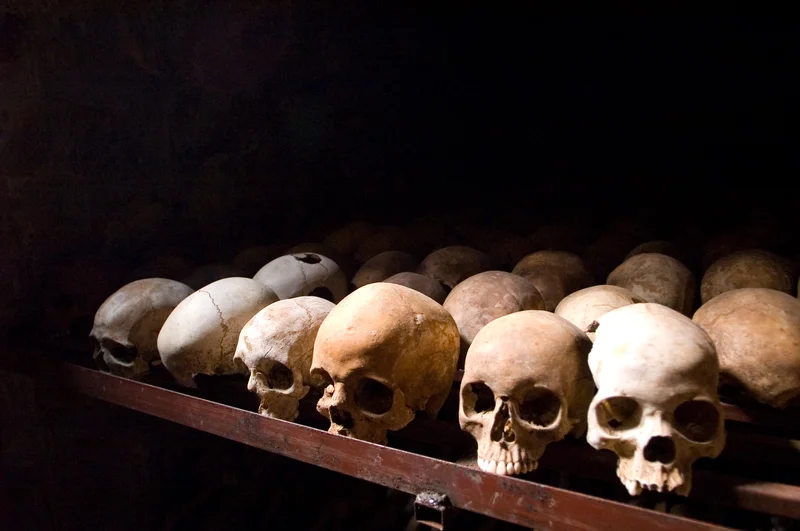
Massacres of Tutsis began in Kigali, Rwanda, as soldiers murdered civilian Prime Minister Agathe Uwilingiyimana. This violence initiated one of the 20th century’s most horrific genocides.
The systematic killing campaign would claim hundreds of thousands of lives over the following months. International observers failed to recognize the genocide’s scope or intervene effectively.
1946 – World Health Organization Established
The United Nations established the World Health Organization as a specialized agency dedicated to international public health. This institution represented unprecedented global cooperation in combating disease and promoting wellness.
The WHO’s creation reflected lessons learned from devastating wartime health crises. The organization’s mandate included coordinating international health responses and establishing universal health standards.
1965 – Native American Tribes Testify Against Termination
Representatives of the National Congress of American Indians testified before US Senate members against the proposed termination of the Colville tribe. Their testimony challenged federal policies aimed at ending tribal sovereignty.
The hearing highlighted ongoing struggles over Native American rights and self-determination. These testimonies contributed to growing opposition against destructive federal termination policies.
Business and Economic Events on April 7
1922 – Teapot Dome Scandal Unfolds

Secretary of the Interior Albert B. Fall leased federal petroleum reserves to private oil companies on extremely generous terms. This corrupt arrangement became known as the Teapot Dome scandal.
The scandal exposed widespread corruption in the Harding administration. Fall’s actions violated public trust and led to his eventual conviction and imprisonment.
1964 – IBM Announces Revolutionary System/360
IBM announced the System/360 computer family, revolutionizing business computing through standardized architecture. This breakthrough allowed organizations to upgrade hardware without replacing software.
The System/360 established IBM’s dominance in corporate computing markets. The standardized design philosophy influenced computer development for decades to come.
1978 – President Carter Cancels Neutron Bomb Development
President Jimmy Carter announced the cancellation of neutron bomb development, citing moral and strategic concerns. This decision reflected growing opposition to weapons designed to kill people while preserving property.
The cancellation demonstrated Carter’s commitment to nuclear arms control initiatives. Defense contractors and military planners criticized the decision as undermining American strategic capabilities.
Transportation and Infrastructure on April 7
1990 – Scandinavian Star Ferry Fire
A devastating fire erupted on the passenger ferry Scandinavian Star, killing 159 people during its journey. The tragedy exposed serious safety deficiencies in maritime passenger transportation.
Investigations revealed inadequate fire suppression systems and emergency procedures. The disaster prompted significant improvements in ferry safety regulations across European waters.
1994 – FedEx Flight 705 Hijacking Attempt

Auburn Calloway attempted to destroy Federal Express Flight 705 to enable his family to collect life insurance benefits. The cargo plane’s crew heroically fought off the attack despite suffering severe injuries.
The attempted hijacking demonstrated vulnerabilities in cargo aviation security. Enhanced screening procedures and crew training programs were implemented following this incident.
1999 – Turkish Airlines Flight 5904 Crashes

Turkish Airlines Flight 5904 crashed near Ceyhan in southern Turkey, killing six people aboard. The accident highlighted ongoing safety concerns in regional aviation operations.
Investigation findings led to improved pilot training and maintenance procedures. The crash prompted enhanced safety oversight for Turkish commercial aviation.
Sports and Recreation on April 7
1943 – NFL Makes Helmets Mandatory
The National Football League implemented mandatory helmet requirements for all players. This safety measure represented a crucial step toward reducing head injuries in professional football.
The rule change reflected growing awareness of football’s physical dangers. Helmet requirements established the foundation for modern player safety equipment standards.
1968 – Formula One Champion Jim Clark Dies
Two-time Formula One British World Champion Jim Clark died in a racing accident during a Formula Two race at Hockenheim. The Scottish driver’s death shocked the international racing community.
Clark’s tragic accident highlighted the extreme dangers faced by professional racing drivers. His death prompted significant safety improvements in Formula One racing regulations.
2011 – Iron Dome Successfully Intercepts Rocket
Israel’s Iron Dome missile defense system successfully intercepted a BM-21 Grad rocket launched from Gaza. This achievement marked the first successful short-range missile interception in combat conditions.
The successful interception demonstrated advanced defensive technology’s effectiveness. Iron Dome’s performance provided crucial protection for Israeli civilian populations.
Notable Births on April 7
1915 – Billie Holiday Born

American jazz singer Billie Holiday was born in Philadelphia, Pennsylvania. Her distinctive vocal style and emotional depth would revolutionize jazz music and popular singing.
Holiday’s troubled childhood shaped her artistic expression and personal struggles. Her powerful interpretations of jazz standards established her as one of America’s greatest vocal artists.
1920 – Ravi Shankar Born

Indian sitar virtuoso Ravi Shankar was born in Benares, India. His masterful performances would introduce Indian classical music to Western audiences worldwide.
Shankar’s collaborations with Western musicians bridged cultural divides through music. His influence extended far beyond traditional Indian classical music into popular culture.
1928 – James Garner Born
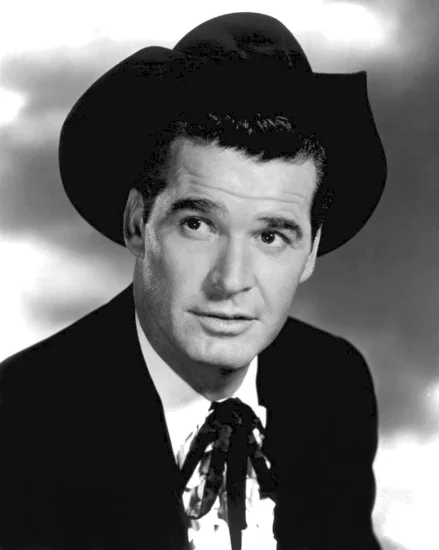
American actor James Garner was born in Norman, Oklahoma. His natural charisma and versatility would make him a beloved television and film star.
Garner’s breakthrough role in “Maverick” established his reputation for playing charming, unconventional characters. His later success in “The Rockford Files” solidified his status as a television icon.
1939 – Francis Ford Coppola Born

American filmmaker Francis Ford Coppola was born in Detroit, Michigan. His innovative directorial vision would create some of cinema’s most influential and acclaimed films.
Coppola’s “Godfather” trilogy revolutionized American filmmaking through its epic scope and artistic ambition. His contributions to cinema established him as one of the greatest directors in film history.
1944 – Gerhard Schröder Born

German politician Gerhard Schröder was born in Mossenberg, Germany. His leadership of the Social Democratic Party would lead to his service as Chancellor of Germany.
Schröder’s political career spanned decades of German democratic development. His chancellorship navigated complex European integration challenges and domestic economic reforms.
1954 – Jackie Chan Born

Hong Kong martial artist and actor Jackie Chan was born in Victoria Peak, Hong Kong. His acrobatic fighting style and comedic timing would revolutionize action cinema.
Chan’s death-defying stunts and innovative choreography established new standards for action filmmaking. His international success bridged Eastern and Western entertainment industries.
Notable Deaths on April 7
1947 – Henry Ford Dies
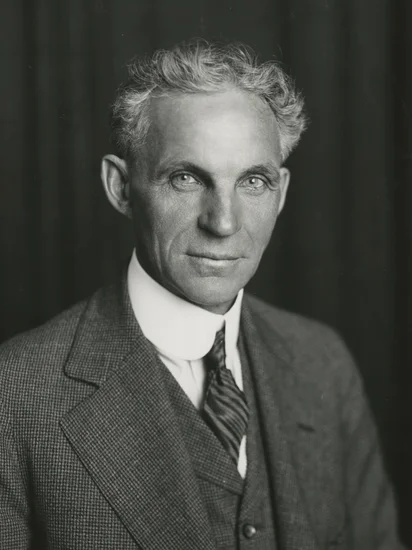
American industrialist Henry Ford died at his estate in Dearborn, Michigan. His revolutionary assembly line production methods had transformed manufacturing and created the modern automotive industry.
Ford’s innovations made automobiles affordable for ordinary Americans. His Model T production techniques established the foundation for mass consumer manufacturing.
1968 – Jim Clark Dies

Scottish Formula One champion Jim Clark died in a racing accident at Hockenheim, Germany. His exceptional driving skills had earned him two World Championship titles.
Clark’s death shocked the international racing community and highlighted the sport’s inherent dangers. His legacy influenced safety improvements in professional motorsports.
1972 – Joe Gallo Dies

American gangster Joe Gallo was assassinated at Umberto’s Clam House in New York City. His violent death concluded a turbulent criminal career in organized crime.
Gallo’s murder reflected ongoing power struggles within New York’s crime families. His assassination became part of American organized crime folklore.
1994 – Agathe Uwilingiyimana Dies
Rwandan Prime Minister Agathe Uwilingiyimana was murdered by soldiers in Kigali. Her assassination marked the beginning of the devastating Rwandan genocide.
Uwilingiyimana’s death eliminated moderate political leadership during Rwanda’s critical crisis. Her murder demonstrated the systematic targeting of Tutsi and moderate Hutu leaders.
2020 – John Prine Dies

American country folk singer-songwriter John Prine died from COVID-19 complications in Nashville, Tennessee. His poetic lyrics and distinctive voice had influenced generations of musicians.
Prine’s songs captured American working-class experiences with humor and compassion. His musical legacy continues to inspire contemporary folk and country artists.
Holidays and Observances on April 7
World Health Day

The World Health Organization designates April 7 as World Health Day to commemorate its founding. This international observance promotes global health awareness and cooperation.
The annual celebration highlights pressing health challenges facing humanity. World Health Day encourages governments and organizations to prioritize public health initiatives.
Genocide Memorial Day in Rwanda
Rwanda observes Genocide Memorial Day to remember the victims of the 1994 genocide. This solemn commemoration honors those who perished during the systematic killing campaign.
The observance serves as a reminder of the importance of preventing future genocides. Memorial ceremonies promote national reconciliation and historical remembrance.
National Beer Day in the United States
Americans celebrate National Beer Day commemorating the partial repeal of Prohibition in 1933. This holiday recognizes the cultural significance of beer in American society.
The celebration reflects American brewing traditions and cultural heritage. Beer enthusiasts use this day to appreciate craft brewing and beer’s social importance.
